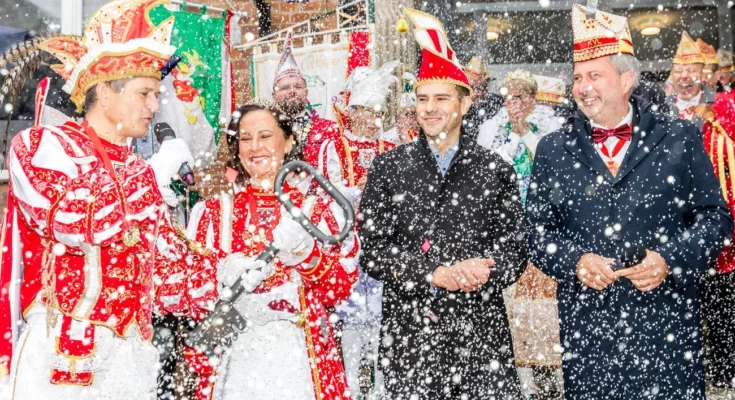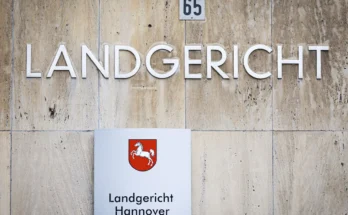Carnival session at Brandenburg opens: In the state capital Potsdam, new mayor Noosha Aubel hands over the keys to city hall to the fools. Even though he is reluctant, as non-party people joke, he has only had it since he was elected a few weeks ago. But Aubel was impressed by the concentrated cheering and hopes to get the keys back on Ash Wednesday along with the positive energy of the carnival participants.
About 150 people celebrated at 11:11 in front of Babelsberg town hall. The city hall in Potsdam is still being renovated, as it was last year, the city government said. That is why the symbolic storming of the town hall, the men’s ballet, the Funkenmariechen dance and the appointment of the royal couple took place in Babelsberg. Lindenpark is also there carnival Club, Potsdam Carnival Club and Ship of Fools of carnival, carnival and social clubs.
Fools have also taken over the town hall at the Cottbus carnival headquarters in East Germany. The city’s princely couple received the keys to the city hall from Mayor Tobias Schick (SPD). According to the city, several hundred participants and spectators were not deterred by intermittent rain. They sing, dance and celebrate after the traditional cannon fire at 11:11.
“Times of joy and light”
President of the Berlin-Brandenburg Carnival Association, Fred Witschel, said: “For me personally, carnival in these times means, above all, consciously creating moments of fun and light.” It is an opportunity to come together, express oneself creatively and celebrate life – “especially when things are challenging”.
The carnival is also filled with discussions about cultural appropriation, inclusion, and respectful interactions. “At a time when many people are experiencing feelings of isolation or social division, carnival is becoming increasingly important as a communal event,” Witschel said. “Celebrating, singing and dancing together enhances the sense of community and creates moments of connection that are often overlooked in busy everyday lives.”
East German Carnival as intangible cultural heritage?
A few days ago, the carnival in East Germany received special attention. The East German carnival association wants its centuries-old traditions to be recognized as intangible cultural heritage and has applied for this.
“The motivation of the regional association and its member clubs is the recognition that certain traditional celebrations, music, costumes and rituals make an invaluable contribution to cultural diversity and social cohesion,” said Witschel. “In Berlin and Brandenburg, this tradition is celebrated less prominently than in the Rhineland or southern Germany, but there is still a vibrant carnival culture here.” This is more than just a festive celebration. The characteristics of the region, integration and sustainability are combined with tradition and modernity and, according to Witschel, create a unique experience.
© dpa-infocom, dpa:251111-930-277299/1


